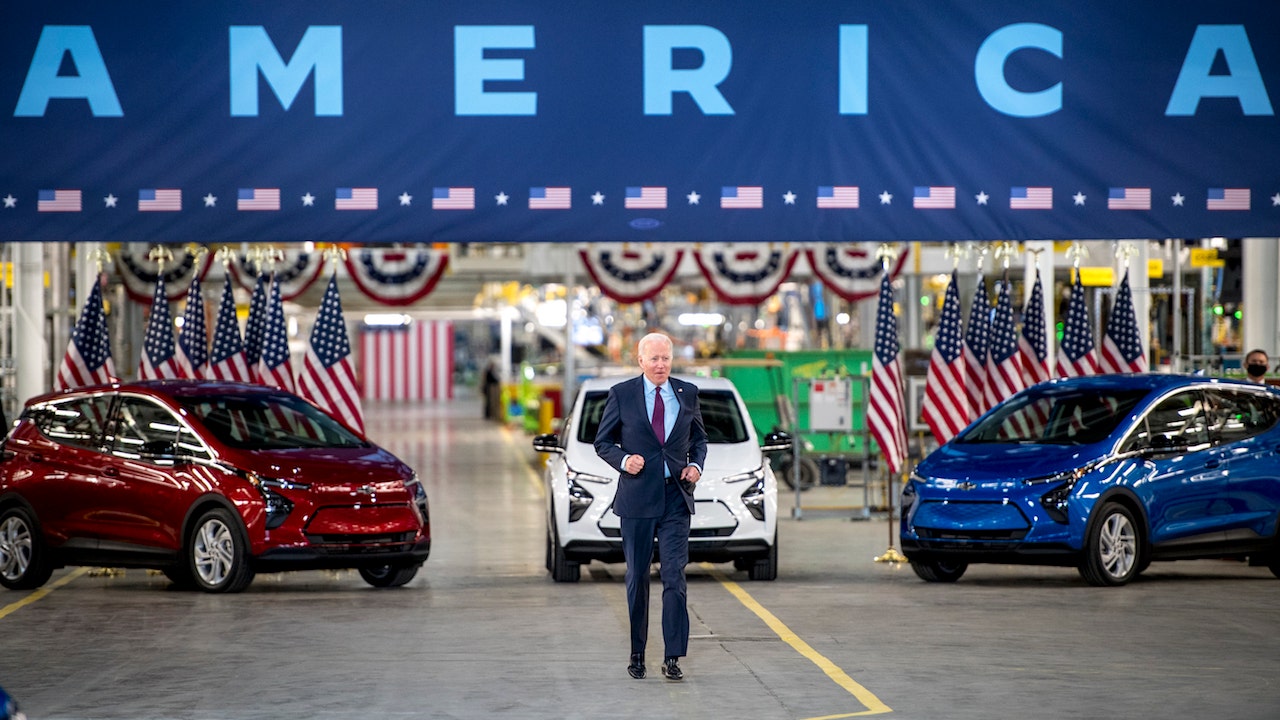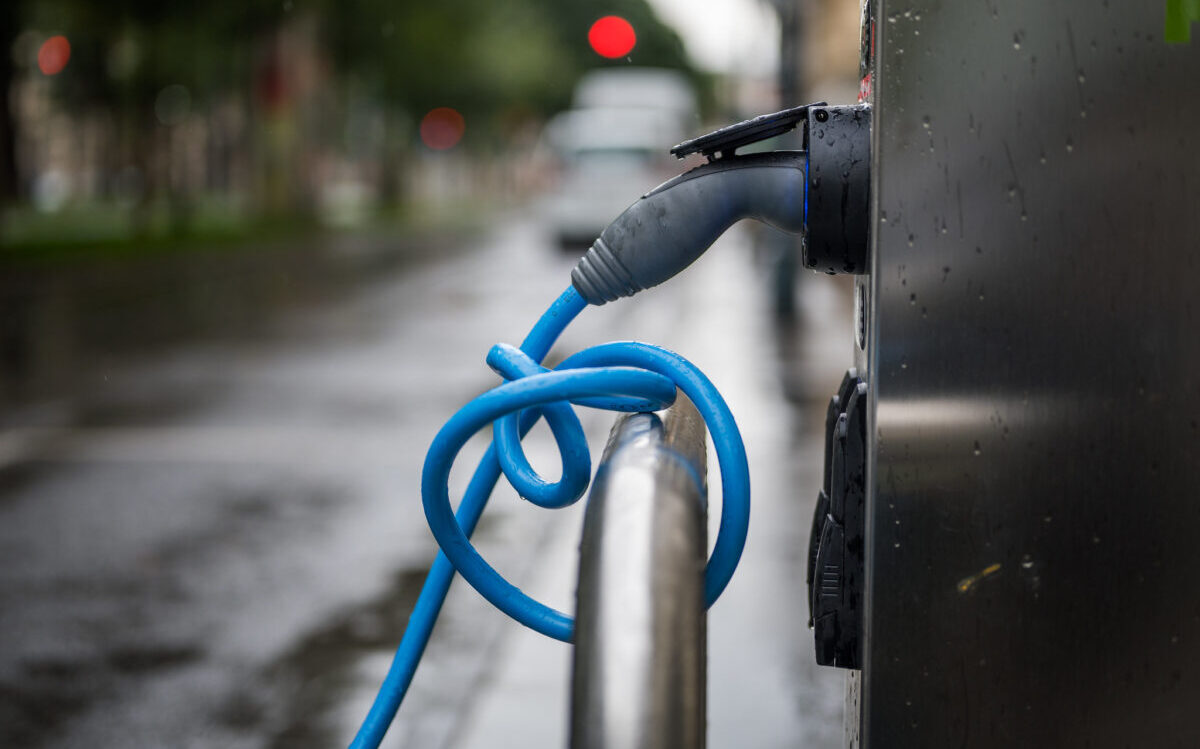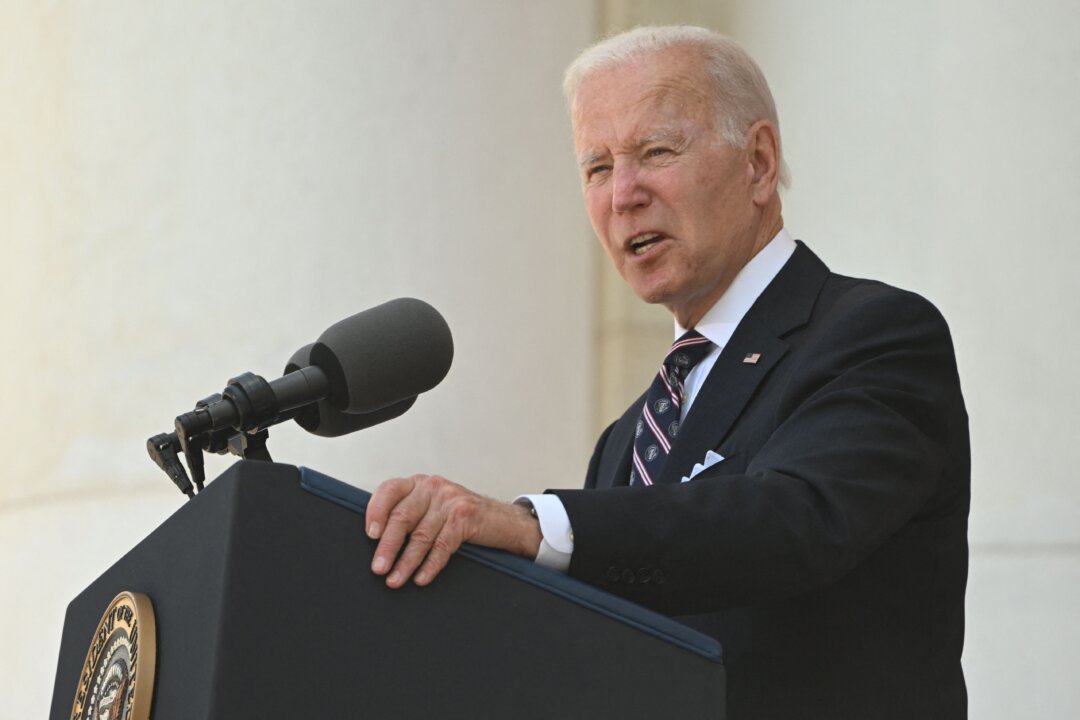bidens incredible transition to electric cars
- Thread starter Old Timer
- Start date
You are using an out of date browser. It may not display this or other websites correctly.
You should upgrade or use an alternative browser.
You should upgrade or use an alternative browser.
tigerwillow1
Known around here
Another agenda driven media conclusion based on tortured raw data. For starters, now that the headline has been widely repeated, the number has been corrected to 40%. Similar to the nice-sounding government employment and economic numbers that get corrected after the wrong data is spread.
"The percentage of American EV owners who say they are likely to switch back to a combustion engine vehicle has been corrected to reflect updated information provided by McKinsey & Co. An earlier version of this story contained an outdated percentage."
Then, the headline "46 Percent Of American EV Owners Want To Go Back To ICE" is very different from the claimed answer that ".... 46 percent of U.S. respondents who currently own an electric vehicle are likely to buy an ICE-powered vehicle as their next car purchase." This is NOT a statement that they want to replace the EV with an ICE vehicle, unless the respondent owns only a single vehicle. A multiple car owner could love his EV, but not want 2 of them, but still be tagged as wanting to "go back" to ICE.
The linked original article is behind a paywall, so it's impossible to see how far it has been spun without paying.
I am not anti-EV. I am anti-propaganda, even if it supports my position.

Biden’s electric vehicle mandates give auto industry to China on a silver platter
Biden treats China as a 'foreign entity of concern' and that nation dominates the materials used in electric vehicle batteries. But the White House is still pushing EV mandates.
mat200
IPCT Contributor
- Jan 17, 2017
- 16,520
- 27,763
View attachment 196641

Biden’s electric vehicle mandates give auto industry to China on a silver platter
Biden treats China as a 'foreign entity of concern' and that nation dominates the materials used in electric vehicle batteries. But the White House is still pushing EV mandates.www.foxnews.com
Chinese EVs also flooded into Russia as Grey market cars .. Russia has changed some tariff laws to make CHinese EVs cost more ..
Gee, I never would have thunk it...... 
</end sarcasm>

 thefederalist.com
thefederalist.com

</end sarcasm>

Nearly Half Of Electric Vehicle Drivers Regret Their Purchase
Forty-six percent of American electric vehicle owners were 'very' likely to opt for a traditional gas-powered car for their next purchase.
Incredibly stupid moves....but what would you expect.I posted this on another thread, but thought it needs a post of it's own.
Nothing like letting the cat out of the bag why they are shutting down pipelines and stuff to run fuel prices sky high. Electric cars.
the brunt of a sagging economy, the Biden administration appears to be framing this as a good thing, believing that citizens will be better off in the future if current supply shortages and high gas prices spiral out of control.
The United States, according to President Joe Biden, is in the midst of an “incredible transition”—one that will pave the way for a green economy.
While the administration may tout the benefits of a sustainable future, the question remains as to what will happen to average Americans while this “transition” takes place.
More importantly, what’s the endgame of all this that Americans don’t know about?
Biden, during a May 23 joint press conference in Japan with the country’s Prime Minister Kishida Fumio, used the word “transition” to seemingly admit that soaring gasoline prices are just part of his administration’s overall plan for moving from hydrocarbons to renewables.
“When it comes to the gas prices, we’re going through an incredible transition that is taking place that, God willing, when it’s over, we’ll be stronger and the world will be stronger and less reliant on fossil fuels when this is over,” Biden said.
The comment seems to suggest that ensuring the country’s gas supply is not high on Biden’s agenda, though the administration did announce to release of 1 million barrels of crude oil a day for six months between May and August.
Biden’s remarks angered some Republican lawmakers, including Rep. Elise Stefanik (R-N.Y.) said the president is “painfully out-of-touch.”
“The pain at the pump every #NY21 family feels is a direct result of Joe Biden and House Democrats’ Far-Left agenda,” Stefanik wrote on Twitter.
Sen. Rick Scott (R-Fla.) also took exception, writing on Twitter, “the only ‘incredible transition’ we want from Joe Biden is his transition to retirement.”
“Every family in America is paying record-breaking high gas prices thanks to @JoeBiden’s war on American energy—but the president doesn’t care,” Scott added.
Director of the National Economic Council Brian Deese speaks during a briefing in the James S. Brady Press Briefing Room of the White House in Washington, on March 31, 2022. (Nicholas Kamm/AFP via Getty Images)
A day before the press conference, Biden’s top economic advisor, Brian Deese told Fox News Sunday that the U.S. economy “is in a period of transition,” when he refused to directly answer a question on whether the economy is entering a recession.
“We’re moving from the strongest economic recovery in modern history to what can be a period of more stable and resilient growth,” Deese said.
On May 1, Samantha Power, head of the U.S. Agency for International Development (USAID), told ABC that fertilizer shortages—caused by Russia exporting less fertilizer presented farmers a chance to “hasten transition” from fertilizer to “natural solutions,” such as manure and compost, a change that farmers would need to “make eventually anyway.”
“So never let a crisis go to waste,” Power said.
Looking at the whole picture, it seems more and more the case that the Biden administration officials are just letting these different economic problems happen on purpose, believing that as these crucial resources collapse Americans will be led to a world of green alternatives.
But such a “transition” is no laughing matter, since these economic problems look set to produce real world pain. The gas crisis and fertilizer shortage are contributing to a global food crisis, and these and other factors could soon lead to actual mass death.
The current wheat supply crunch is in a case in point. On May 19, Sara Menker, the chief executive officer of New York-based agriculture analytics firm Gro Intelligence, told the U.N. Security Council that the world had only about 10 weeks of wheat supply left in storage.
“I want to start by explicitly saying that the Russia–Ukraine war did not start the food security crisis. It simply added fuel to a fire that was long burning,” Menker said. “It is important to note that the lowest grain inventory levels the world has ever seen are now occurring while access to fertilizers is highly constrained.”
Meanwhile, diesel prices in the United States have jumped more than 70 percent from a year ago. Further price increases could dampen the economy since diesel is used in everything from cargo ships, to freight trucks, to farming machinery.
U.S. Vice President Kamala Harris speaks on the administration’s American Rescue Plan and Bipartisan Infrastructure Law investments from the South Court Auditorium of the Eisenhower Executive Office Building, in Washington, on March 7, 2022. (Mandel Ngan/AFP via Getty Images)
The Biden administration has spoken enthusiastically about a future with clean energy, such as when Vice President Kamala Harris in March spoke of a world without hydrocarbon emissions.
“Imagine a future: The freight trucks that deliver bread and milk to our grocery store shelves and the buses that take children to school and parents to work; imagine all the heavy-duty vehicles that keep our supply lines strong and allow our economy to grow—imagine that they produced zero emissions,” Harris said during an “Accelerating Clean Transportation” event.
Speaking at the same event, Transportation Secretary Pete Buttigieg claimed that electric vehicles will bring “cost savings” to Americans.
“Clean transportation can bring significant cost savings for the American people as well,” Buttigieg said. “Last month, we announced a $5 billion investment to build out a nationwide electric vehicle charging network so the people from rural to suburban to urban communities can all benefit from the gas savings of driving an EV.”
Taken together, whether it’s with food or with gas, it seems as though many people within the Biden administration are pretty clear about what they’re trying to do.
They don’t appear to be willing or interested in fixing things, when it comes to the things that Americans all worried about.
Rather, it seems as though they’re planning for this—a transition to a green future, to the system that they want.
The Epoch Times has reached out to the White House for comment.
Joshua Philipp
abita_brewing
Getting the hang of it
Incredibly stupid moves....but what would you expect.
Does not seem stupid to move ahead with new/modern technology. At one point I'm sure people whined about moving from horses to automobiles... but that change accelerated the economy forward.
And gas prices, adjusted for inflation, are about what I paid 30 years ago, while my vehicle gets 3x the mileage of my old one, lasts longer, has WAY nicer amenities, and excellent crash protection.
We will look back on gas/diesel years and regret we didn't move away sooner.
"New" is not always better, nor is "modern". Any change should be judged on its merits in many areas, not just on those that make it look better.Does not seem stupid to move ahead with new/modern technology.
Well, of course they objected.....initially. A horse can carry only 1 or 2 on it's back and maybe four in a buggy; 6 horses can pull a coach with 8 people plus baggage. Any of those can travel 60 to 70 miles in a day then have a 10 hour layover for allowing the horses and people to water, rest, eat and be ready the next morning. They could only travel at night and the hotter the temps the less daily distance could be achieved. So why would anyone then not eventually see how much better auto travel could be? For what possible reason would horse transportation be better that automobile travel when you look at categories such as distance covered, convenience and affordability?At one point I'm sure people whined about moving from horses to automobiles... but that change accelerated the economy forward.
You may be right....but I already regret the time and taxpayer money spent to promote EV's when the automakers could have been encouraged financially to perhaps double the efficiency and cut current carbon emissions by one half....much like you stated how today's ICE vehicles get 3X the mileage they did before.We will look back on gas/diesel years and regret we didn't move away sooner.
Just my
mackmadera
Pulling my weight
I have mixed feelings about electrifying the auto fleet. In its present form, it's not workable because the battery technology is nowhere near good enough. But in 10 years, we'll have batteries you can charge in 5 minutes and drive 700 miles. They'll push fuel prices so high that the gas engine will die. After that happens, the robo taxi will take off. Self-driving cars will be much safer. You won't own a car. You'll have a subscription to a ride service. Then they'll outlaw people driving. With control of the entire fleet, there won't be a need for stoplights, no traffic jams, and virtually no traffic accidents or deaths. It's all good, except where the government knows everywhere you go all the time. That makes me cringe.
I did hear a case for hybrid in the military that might make sense. Have diesel for normal use but have electric available when quiet/stealth is needed.
abita_brewing
Getting the hang of it
I have mixed feelings about electrifying the auto fleet. In its present form, it's not workable because the battery technology is nowhere near good enough. But in 10 years, we'll have batteries you can charge in 5 minutes and drive 700 miles. They'll push fuel prices so high that the gas engine will die. After that happens, the robo taxi will take off. Self-driving cars will be much safer. You won't own a car. You'll have a subscription to a ride service. Then they'll outlaw people driving. With control of the entire fleet, there won't be a need for stoplights, no traffic jams, and virtually no traffic accidents or deaths. It's all good, except where the government knows everywhere you go all the time. That makes me cringe.
Gov't and private companies ALREADY know where you go... it's called a cell phone. The tower data, combined with GPS data, combined with accelerometer data let all these places know where you are, how long you stayed, how fast you drove, how quickly you accelerated, etc. And that's saying nothing about data you volunteer (facebook/etc postings), data others submit about you (pictures, postings), etc. They are drowning in data w/o the ability/time to process it. It's being vacuumed up and warehoused... to process at a point in the future.
I don't think battery tech w/ take 10 years. Some of the tech is really close to gas fueling time equivalence right now.
We didn't leave the stone age because we ran out of stones. We didn't leave whale oil lighting because we ran out of whales. And we won't leave petroleum because we run out.
mackmadera
Pulling my weight
I can choose not to carry a cell phone, or I can turn it off. I can't very well do that after I've summoned a ride service, which will have cameras in the car. Batteries suck now, compared to what's needed to change the fleet. Everyone who drives an electric car finds that out. That's why they aren't selling. It will be another 5 years for the entry of capacitor batteries. Give it another 5, and we'll be there. It's not happening next year.Gov't and private companies ALREADY know where you go... it's called a cell phone. The tower data, combined with GPS data, combined with accelerometer data let all these places know where you are, how long you stayed, how fast you drove, how quickly you accelerated, etc. And that's saying nothing about data you volunteer (facebook/etc postings), data others submit about you (pictures, postings), etc. They are drowning in data w/o the ability/time to process it. It's being vacuumed up and warehoused... to process at a point in the future.
I don't think battery tech w/ take 10 years. Some of the tech is really close to gas fueling time equivalence right now.
We didn't leave the stone age because we ran out of stones. We didn't leave whale oil lighting because we ran out of whales. And we won't leave petroleum because we run out.
abita_brewing
Getting the hang of it
I can choose not to carry a cell phone, or I can turn it off. I can't very well do that after I've summoned a ride service, which will have cameras in the car. Batteries suck now, compared to what's needed to change the fleet. Everyone who drives an electric car finds that out. That's why they aren't selling. It will be another 5 years for the entry of capacitor batteries. Give it another 5, and we'll be there. It's not happening next year.
I get that you can turn it off. However, you don't currently. So the data warehousing people (everyone more or less) knows your habits, friends, points of interest (even that trip to the sketchy porn store every 6 months).
As we, on this forum, should be well aware... there are TONS of cameras out there that you can't control, or even know about. (Mine can see my neighbor 600' away pissing in his side yard). Privacy is dead. The gov't is the sole voice protecting it, not exploiting it. We should be thankful for that pushback.
I did hear a case for hybrid in the military that might make sense. Have diesel for normal use but have electric available when quiet/stealth is needed.
You better just knock that common sense shit off, MISTER!
mat200
IPCT Contributor
- Jan 17, 2017
- 16,520
- 27,763
I did hear a case for hybrid in the military that might make sense. Have diesel for normal use but have electric available when quiet/stealth is needed.
Oh! Yes .. I heard of that new hybrid technology will revolutionize the military
Diesel Electric .. Oh wait .. us military already did that .. 1911 ss24 first us diesel electric sub .. lol
Germany did that hybrid tank thing also in wwii
mat200
IPCT Contributor
- Jan 17, 2017
- 16,520
- 27,763
Supreme Court Drops Bombshell Ruling On Electric Vehicles
Car Coach Reports
The Supreme Court’s recent ruling on “Chevron deference” could affect federal regulations of everything from power plant emissions to electric vehicles to transmission lines.
Car Coach Reports
The Supreme Court’s recent ruling on “Chevron deference” could affect federal regulations of everything from power plant emissions to electric vehicles to transmission lines.

Man slams electric vehicles as the ‘biggest scam of modern times’ and here’s why #shorts
A Canadian man and his family embarked on a 1,400 mile road trip to Chicago but the trip took an unexpected turn that led to the family making it to their de...
looney2ns
IPCT Contributor
So, he didn't spend 10 minutes researching EV's prior to purchase?
Man slams electric vehicles as the ‘biggest scam of modern times’ and here’s why #shorts
A Canadian man and his family embarked on a 1,400 mile road trip to Chicago but the trip took an unexpected turn that led to the family making it to their de...www.youtube.com



